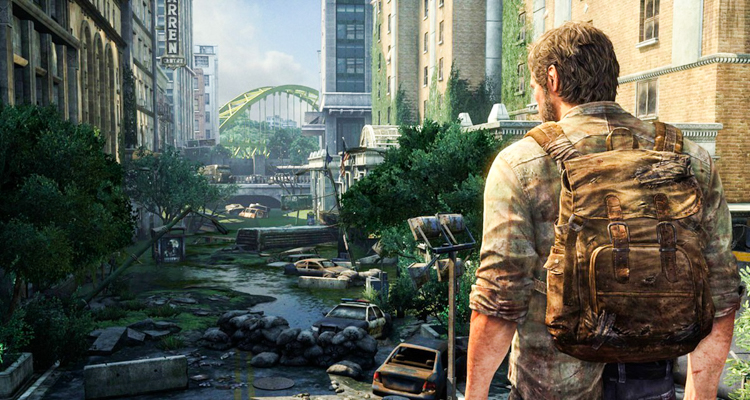BY: TREVOR HEWITT
Loud banging on your door interrupts dinner. A commanding voice competes with that of your now-wailing newborn; it tells you that you have five minutes to evacuate your home with your entire family and anything you care about. No, it’s not the end of the world – it’s just the unraveling of a long-stressed social contract.
The question isn’t how it ever came to this, but rather, are we really all that surprised?
If you’re like me, aside from your family, that “anything you care about” section probably includes one or two sentimental items, some non-perishables and possibly a jacket or something of the like, stuffed crudely into a gym bag. That’s more than Joel gets in the opening of The Last Of Us, a post-apocalyptic survival thriller where a mutated strain of the Cordyceps fungus has led to global catastrophe – in just several months, over 60 per cent of humanity had been either infected with the Cordyceps Brain Infection (CBI) or killed.
The worldwide pandemic causes a complete and total degradation of society through violence. Twenty years later, when the game takes place, humanity rests on the brink of extinction. In the U.S., survivors are crammed into tiny quarantine zones nationwide, the military unable to completely contain the virus or even fully communicate with one another. A militia group called the Fireflies fights with the dwindling U.S. government for power. They call for a removal of martial law and, after the government has given up, continued research into manufacturing a virus vaccine.
While the game itself is an eerily beautiful testimony to the impact decades of natures reclamation has on cities – lush vines and trees beginning to take back highrises and sprouting through cars – what sets it aside from others is the element of realism players experience. You become attached to the main characters, Joel and Ellie, and their stories. What I noticed most, however, was that, as I played the game, I found myself much more sympathetic for the infected; I’d play through areas without killing them unless it was absolutely necessary.
As for the humans? Well, by the end of the game, you realize they’re the real monsters.
In The Last Of Us, most of the quarantine zones you visit have degraded into complete chaos. Groups of disgruntled citizens have overthrown the military, often in violent, public executions. In Pittsburgh, they roam the streets in armored vehicles, gunning down any outsiders seeking refuge or shelter in the city. I won’t give any spoilers and I won’t go into details, but some of the content is just downright gruesome. Anyone who resists their control is silenced quickly and without mercy.
You might ask yourself, what is the point I’m trying to make? The way Cordyceps spread to humans in The Last Of Us is highly unrealistic – it will most likely never happen. As a result, society will never degrade to this point. I agree with everything except the last point.
Sure, we still have “democracy” and an intact social contract, but aside from that, what sets us apart from these marauders? These humans in Pittsburgh, they weren’t infected – their actions are the result of an extraordinary response to an extraordinary situation – something that, historically speaking, humans have experienced often. Look at the crusades, the Spanish Inquisition and the Black Death if you don’t believe me. Who’s to say that, in a contemporary context, with guns and grenade launchers, a modern dark age wouldn’t be exponentially worse than before.
Let me be clear, I’m not worried about Cordyceps infecting humans – that’s silly. I’m worried that when society degrades, for whatever reason, it will happen in a similar manner – groups of holed-up people, scared for themselves and their loved ones, acting more and more violent towards others as the social contract disintegrates into nothing more than a taunting memory.
You might snicker, but is it really all that unlikely? We are at a metaphorical fork in the road with regards to so many issues – climate change, the nuclear threat, terrorism and famine, to name a few. Though naysayers scoff at the idea of civilization becoming extinct, we must face a harsh reality – if we don’t decide what is right for us, not as individuals, but as a species, we too could end up being the last of us.
Don’t start stocking up chicken chow mein just yet, because there’s still hope. If there’s one thing that humans are great at, historically speaking, it’s adaptation. The UN’s recent success at COP21 has shown that we can make the right decisions for our planet, and not just ourselves as individuals. Though we’ve begun visualizing climate change as a global problem, there’s still much to do.
We have to find a way to speed up nuclear disarmament – the U.S. and Russia still have over 3,000 nuclear missiles currently deployed at various military bases. This is much more than necessary to deter other nuclear attacks. Additionally, even if these weapons were used in a limited capacity, the result would be “catastrophic nuclear devastation.” There’s also that issue of the 100+ ‘suitcase nukes’ that Russia’s former national security chief, Gen. Alexander Lebed, claimed went missing after the fall of the USSR. Despite the Russian government denying these claims, another senior Russian security official, Alexei Yablokov, supported Lebed’s statement. A modern nuclear explosion in a populated city like Washington, D.C. would likely be the most devastating man-made act of violence in human history.
Additional to the nuclear threat is the issue of extremism. As groups like ISIS and Boko Haram gain support and strength, we have to be extremely careful as to how we deal with the extremist threat –bombing areas that we know to be occupied by terrorists isn’t working. In fact, it’s creating more problems.
We need to find better ways to give innocent individuals in dangerous areas a safe and positive environment after they’ve experienced terror.
Then there’s Trump. I’ve already discussed him ad nauseam before, so all I’ll say is this – Trump’s proposed ban on Muslims is exactly what ISIS wants. They know that if they can catalyze a shift to Islamic persecution in western civilizations that they will be able to recruit more disenfranchised individuals to their cause, especially if they have footholds in the only areas allowing people to practice the Islamic faith.
Any country trying to fight ISIS by closing their borders and persecuting their own people are falling into their trap.
The question isn’t if we possess the ability to change our ways, it’s if we can start a shift before it’s too late. Saving our society from the same fate as humanity in The Last Of Us requires humans to break this detrimental mindset of thinking only of ourselves and immediate loved ones. Instead, to survive as a species, we need to start caring about others with no bearing on us, to think of how our actions affect people we will never meet.
This relates to the end of the game, I won’t spoil it for anyone who hasn’t played it, but Joel has to make a very tough choice that epitomizes just how much humans, especially in times of stress, think of themselves, and not the collective good. Only when we begin to reverse this mindset can we begin fixing the unsustainable global inequality that plagues us and contributes to issues like famine and disease.
You really do begin to feel for the infected by the end of The Last Of Us. What remains of a scientific community has agreed that, during the earliest stage of infection, hosts are aware of their actions, able to feel physical pain. When asked about why he chooses to live in an abandoned town full of infected, Joel’s friend Bill sums it up pretty well. “You know, as bad as those things are, at least they’re predictable. It’s the normal people that scare me.”







